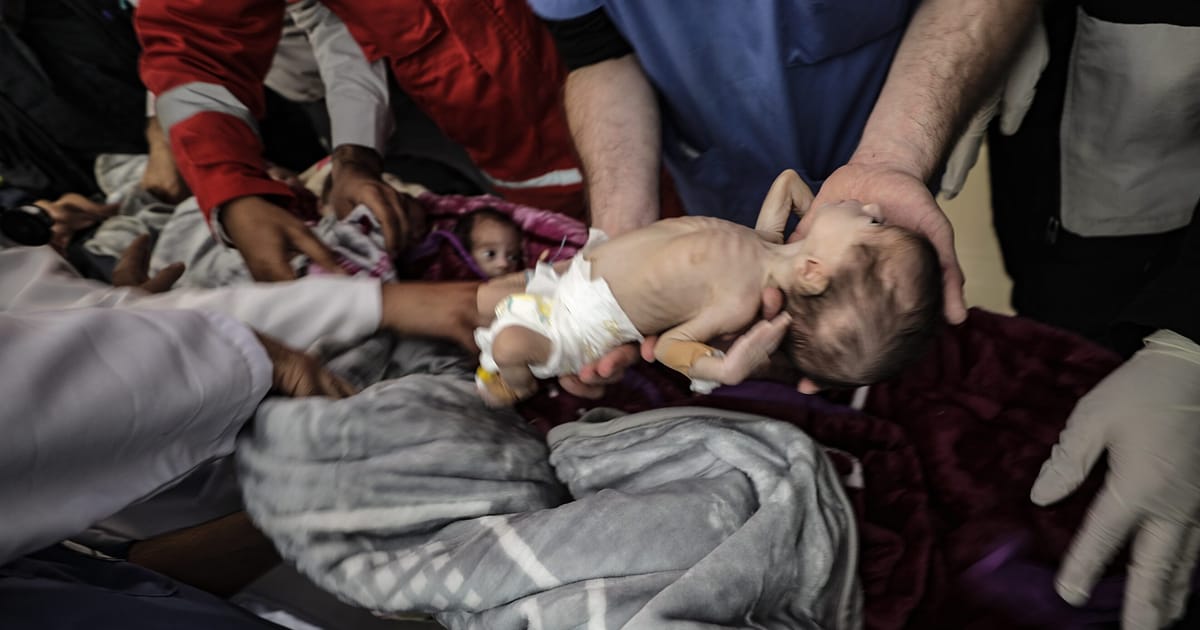

In recent days, significant developments have unfolded in the realm of international diplomacy, particularly concerning the Middle East. The European Union finds itself at a crossroads, as pressure mounts from various humanitarian organizations to take decisive action regarding the ongoing humanitarian challenges in Gaza. Against this backdrop, France has taken a notable step forward by announcing its recognition of Palestinian statehood, a decision welcomed by some as a courageous move amid increasing tension. These actions are set against a broader context of Europe possibly reassessing its role in vexing international affairs, reminiscent of pivotal decisions made in the past, such as the Iran nuclear deal.
The European Union is under increasing scrutiny as non-governmental organizations urge it to impose sanctions on Israel due to the dire humanitarian crisis in Gaza. This plea comes at a time when the situation on the ground continues to worsen, with aid agencies warning of severe hunger and instability affecting the Palestinian population. The call for action highlights a broader expectation that the EU should actively leverage its diplomatic influence to foster peace and security in the region. While the EU had previously played a substantial role in negotiating the Iran nuclear agreement, it remains to be seen whether it will again seek to employ its diplomatic prowess to guide the situation towards resolution.
Simultaneously, France, under the leadership of President Emmanuel Macron, has formally announced its decision to recognize the State of Palestine. This landmark declaration is unparalleled in European diplomacy concerning the Middle East, as it marks a pointed shift towards affirmatively supporting Palestinian sovereignty. President Macron, in announcing this decision, emphasized his intention to set a precedent for other nations to perhaps follow suit when the decision is officially presented at the United Nations General Assembly in September. This shift is influenced by recent conversations with global leaders, as Macron prepares to engage with the UK and Germany on this pressing issue.
It is noteworthy that President Macron’s decision has not been made in isolation. Recent diplomatic dialogues have seen Palestinian Authority leader Mahmoud Abbas condemning acts of terror while promising to revitalize the governance of his authority and work towards demilitarizing factions like Hamas. This demonstrates a commitment to peace and a desire for enhanced relations with the international community, which France aims to support through its recognition of Palestinian statehood. The anticipation is palpable as September approaches, when this strategy will be fully articulated at the global stage of the United Nations.
The decision by France may very well inspire a reevaluation of the EU’s collective stance on this matter. It resonates with not just immediate humanitarian concerns but aligns with a broader vision of lasting peace and stability. Europe’s role seems to be experiencing a subtle transformation, seeking a balance between moral leadership and strategic diplomacy. By reevaluating its position on long-standing conflicts and nurturing avenues for peaceful coexistence, the EU is once again underscoring its commitment to fostering a balanced approach where diplomacy transcends conflict.
In essence, these interconnected developments reflect a nuanced phase in European diplomacy, where the dual themes of humanitarian consideration and strategic foresight intersect. As the world observes, the coming months may very well redefine Europe’s engagement in global affairs, heralding opportunities for peace where stalemates once prevailed. Through mindful navigation of complexities and upholding the principles of dialogue and cooperation, Europe holds the potential to lead by example in the quest for sustainable global solutions.
Source: {link}
